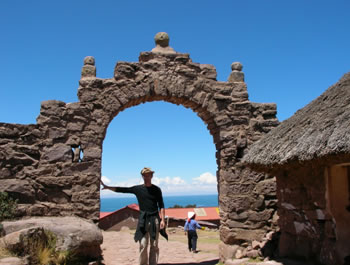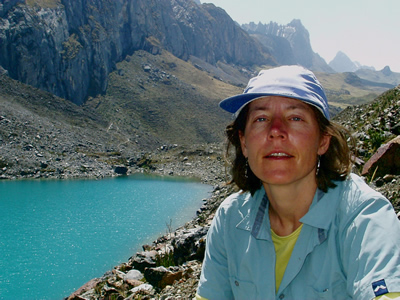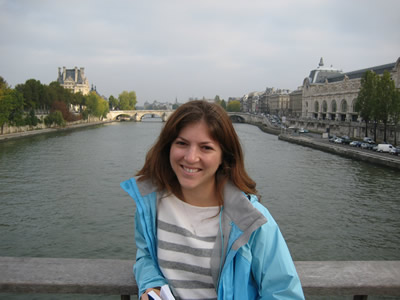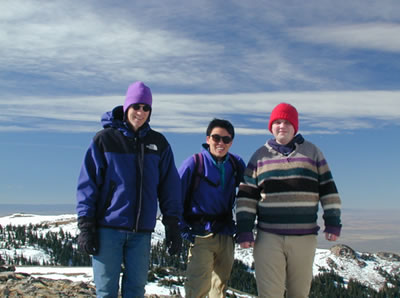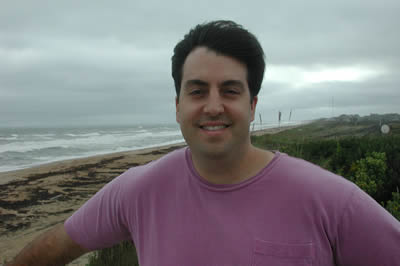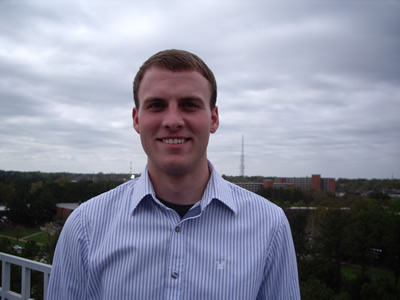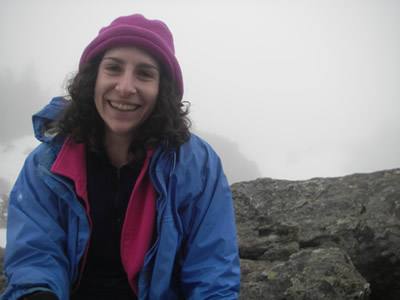
Image Courtesy of Rhea George
Rhea George
Many students in atmospheric science were motivated to enter the field by some fascinating extreme weather event experienced as a child. This was not the case with me. When I was an undergraduate I was very unsure of what direction to go. I chose to major in Computer Science, because the assignments were logic puzzles, and fitting the pieces together easily fascinated me. However, I continued to dabble in other fields, and a class by Professor Walter Alvarez in the Earth and Planetary Science department steered me towards Earth Science. We read his book, “T. Rex and the Crater of Doom,” about his discovery that a giant asteroid, or comet, hit the earth 65 million years ago, causing the sudden extinction of the dinosaurs. His engaging retelling of the story, his obvious passion for geology, rocks, maps, etc., motivated me to take more classes in the Earth Sciences. A subject that made someone's eyes light up like that had to be good. I graduated from the University of California, Berkeley, with two Bachelors of Art degrees, one in Computer Science and one in Earth and Planetary Science, with an emphasis in Atmospheric Science.
During summers of my undergraduate studies, I participated in three Research Experience for Undergraduates (REU) programs. They were located at Santa Clara University in California; University of Michigan Biological Station in Pellston, Michigan; and the Arecibo Observatory in Puerto Rico through Cornell University. These 10 weeks of research each summer helped me figure out which science skills I was good at and which skills I clearly needed to work on, and thus helped me to pick a direction for graduate school. I wanted to combine my love of programming with applied science, and the atmosphere seemed like a great place to do this.
Now entering my 3rd year in graduate school in the Atmospheric Science department at the University of Washington, I am studying how clouds influence the climate, a stubborn problem in global climate models. During my first year here, I met Robert Wood, whose passion for science and clouds paralleled Alvarez's interest in rocks. Wood soon became my advisor, and since then I've used satellite data to try to better understand the behavior of clouds, in particular the clouds off the coast of Chile, in the same geographic region that VOCALS is taking place. I don't have my own instrument in the VOCALS campaign, but will be looking at cloud data recorded by the planes. My role will be to help figure out the best days to fly the planes so that the data collected is as useful as possible. I will do this with the help of forecast data provided by other VOCALS members, using trajectory analysis to predict where the air in one location will be later on.
I like to balance science with a side of exercise. Daily activity is a necessity! I love running, hiking, mountain biking, backpacking, scuba diving, etc., or anything that is outdoors and adventurous. My favorite activity often changes, but currently long trail runs keep me motivated. I also enjoy traveling, and I look forward to exploring Chile once the campaign is finished.






